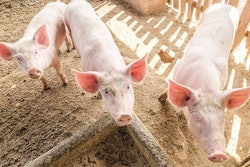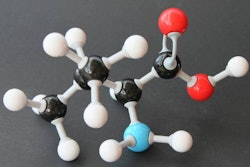
2 strains of probiotics improve feed conversion ratio, reduce ileitis in swine
Two strains of probiotics hold particular promise for promoting feed conversion and reducing certain infections in swine, according to recent research.
Previous research has found that Bacillus-based probiotics have inconsistent effects from one farm to the next, according to Carola van der Peet-Schwering, a researcher specializing in pig nutrition at Wageningen Livestock Research. Previous research cataloging 245 Bacillus strains had determined that three — Bacillus amyloliquefaciens, Bacillus subtilis, and Bacillus mojavensis — “showed the best overall characteristics in terms of heat resistance of spores, inhibitory activity against pathogenic bacteria and antibiotic resistance and, therefore, potential for usage as probiotic additives in feed,” Peet-Schwering said.
Together with funding and researcher from Chr. Hansen, Peet-Schwering’s team evaluated two of the strains in combination, Bacillus amyloliquefaciens, and Bacillus subtilis. Pigs in the study were fed dry feed ad libitum and supplemented with 400 milligrams of Bacillus spores per kilogram of feed. Used together, these two strains improved pigs’ feed conversion ratio, particularly during the finisher phase, and seemed to increase daily weight gain.
Pigs fed the probiotic mix also required fewer treatments of ileitis, an infection with Lawsonia intracellularis, although overall veterinary treatments and culls did not improve during the study, published in the March 2020 edition of Animal Feed Science and Technology.
Although the research team did not compare their results to those expected from growth-promoting antibiotics, Peet-Schwering said the results of the study suggest some — but not all — probiotics could serve as an alternative to antibiotics in animal feed. If producers were inclined to experiment with different probiotic strains in swine, Peet-Schwering said, these two Bacillus strains appear to be the most likely to produce consistent results.













